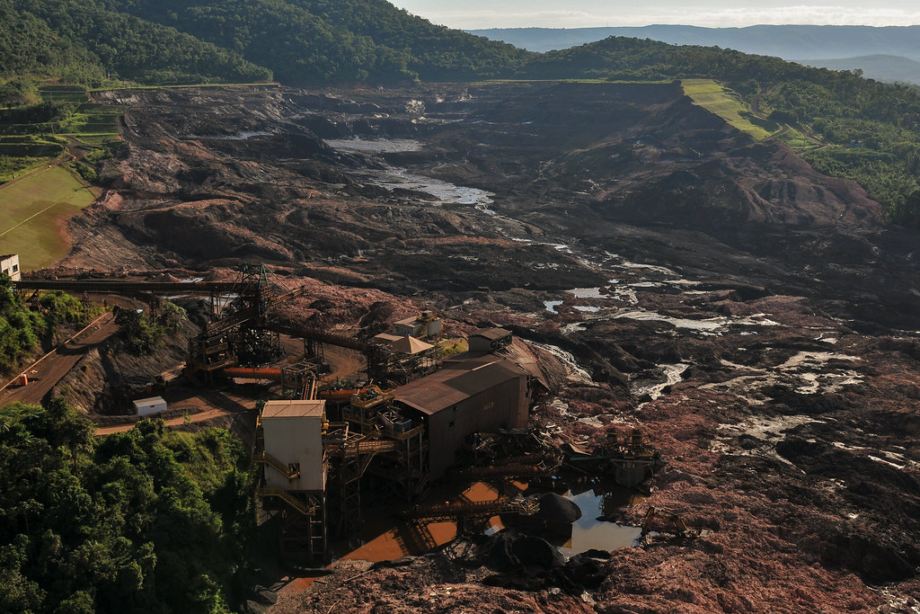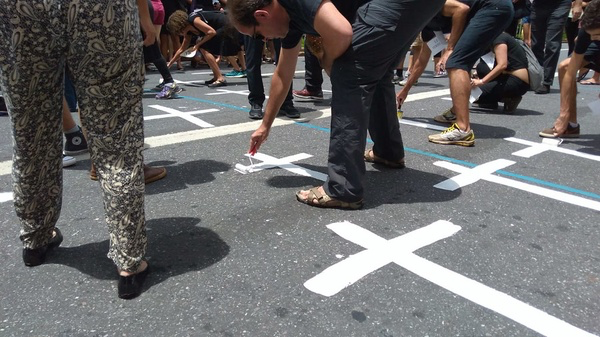Another crisis, so what?
Notes on the “corona turn” of my research project on crises in Minas Gerais / Brazil
Trapped between multiple crises
“The logic of ‘like it used to be’ and ‘already normal again’ indeed reveals
how the post-disaster everyday is at once normal and never the same.”
(Samuels 2019: 4)
Initially, my intended PhD project focused exclusively on the transfer and implementation of state care in the aftermath of the so-called “Brumadinho dam disaster:” On January 25, 2019, the tailings dam of an iron ore mine in the city of Brumadinho, located in the Brazilian State of Minas Gerais, collapsed, releasing tens of thousands of tons of toxic iron ore mud that killed 272 community members and led to an environmental, infrastructural, and humanitarian catastrophe. The collapse of the dam, which was owned by the Brazilian mining corporation Vale, came as a shock. The construction had been approved as safe by the Brazilian branch of the German company TÜV Süd only months ahead of the disaster in September 2018, however, as was later revealed, TÜV Süd’s engineers had deliberately ignored infrastructural instabilities. My research project was driven initially by two interrelated questions: (1) What are the socio-political consequences of this ‘state of exception’ and (2) what were the structural principles guiding both the intervention of the various bureaucratic agencies involved and the coordination of national and international humanitarian disaster relief efforts? In fact, the international scope of the “Brumadinho dam disaster” is one of the most significant facets of this terrible event: Shortly after the extent of the destruction in Brumadinho had become clear, Brazilian rescue teams were assisted by specialists of the Israel Defense Forces dispatched to Brazil. In addition, the event was not only covered by international media but has also directly influenced political and economic decision-making right on my doorstep in Germany: Two employees of the TÜV Süd in Munich, for instance, were arrested on charges of corruption regarding the deficient safety check of the collapsed dam in September 2018. Apart from this, the “Brumadinho dam disaster” functions as one of the prime political catalysts for the German “Initiative Lieferkettengesetz” arguing in favor of legislative change to ensure that German companies operating on inter- and multinational levels comply with international human rights standards throughout all phases of their supply chains.

„Brumadinho, Minas Gerais” © Ibamagov / Creative Commons – license: CC BY-NC-SA 2.0.
As I was confronted with the severity of the SARS-CoV-2 outbreak in Brazil, however, I came to realize that my initial research project would be unfeasible: When would I be able to travel to Brumadinho? And what would be the ethical implications of conducting research about a disaster that had occurred right before another devastating incident, the coronavirus pandemic, hit society?
Aside from the United States, Brazil was the only country in the world whose death toll had surpassed 100,000 deaths due to Covid-19 by August 2020. When the novel coronavirus hit Southern America by the end of February 2020, the Brazilian Federal Government’s policies toward SARS-CoV-2 were and still are characterized by ignorance and inaction: President Jair Bolsonaro repeatedly called the virus a “small flu” (gripezinha) and actively downplayed its deadly consequences when officially rejecting recommendations by the WHO. So far, two Ministers of Health have abdicated and resigned due to substantial disagreements with the President’s position toward the coronavirus; after holding the position on an interim basis between May and September 2020, a former Lieutenant General of the Brazilian Armed Forces is now head of the Ministry of Health. Meanwhile, the Brazilian population is facing the dramatic consequences of a notoriously underfunded public healthcare system and severe cuts in social welfare spending. Though the recrent history in Brazil has continuously been characterized as a constant sequence of crisis formations (cf. Taddei 2020), such as an unprecedented corruption crisis, a whole series of political upheavals and mass protests, the outcomes of numerous environmental crimes, and the threatening extinction of indigenous populations, to name just a few, the outbreak of SARS-CoV-2 has, nevertheless, significantly excerbated the socio-politically unbalanced conditions in the country.

„Manifestantes desenham cruzes no chão da Praça da Liberdade, em Belo Horizonte, para homenagear as vítimas do crime de Brumadinho (MG), que completa um mês nesta segunda (25).” [“Protesters paint crosses on the floor of the Praça da Liberdade in Belo Horizonte to honor the crime victims of Brumadinho (Minas Ge-rais) about one month after the incident (25 Feburary 2019).”] © Danilo Chammas / Brasil de Fato – license: CC BY-NC-SA 2.0.
A new set of questions has emerged during my ongoing literature and media review about the coronavirus situation in Brazil in general and, of course, in Minas Gerais and Brumadinho more specifically: What does it mean, for instance, for the citizens of Brumadinho, who have only recently been confronted with their graveyard being suddenly incapacitated by the sheer number of dead bodies to bury, to now face the severe outcomes of the coronavirus pandemic? How do local political decision-makers cope with the dramatic consequences of the rapid proliferation of SARS-CoV-2 within Brazil’s population, while another crisis, the collapse of the tailings dam, still demands acknowledgment and resolution? To what extent are previous experiences with crises relevant regarding public communication, the distribution of aid and assistance, and the organization of compensation and public support? How far, then, are these two, seemingly distinct crises, the Brumadinho dam disaster and the outbreak of the coronavirus in Minas Gerais, interrelated?
A “corona turn”
Several local community members in Brumadinho claimed that the rising numbers of SARS-CoV-2 infections in the region are directly related to labor migration in the context of mining activities and the ongoing clean-up operations after the collapse of the dam. Moreover, in August 2020, the mining company Vale tried to prevent members of the community from further protesting for compensation by filing a court case. Even though the case was eventually dismissed, it, nevertheless, bears witness to the ongoing conflicting dynamics in Brumadinho in the face of the coronavirus: In the spring, the company abruptly reduced aid and compensation payments to the victims of the dam disaster by roughly 50%, a step that the company justified with internal difficulties in documentation. In addition, during the outbreak of the coronavirus, Vale also abandoned its service office in the city, thereby leaving claimants without access to direct contact with company operatives. As a result, citizens of Brumadinho organized a series of protests during which protestors, for instance, blocked the access road to the site of the clean-up operations in order to attract Vale’s attention and publicly express their anger. The rampage of SARS-CoV-2 had also halted the search for the last eleven missing bodies still covered by toxic mud for more than five months – five additional months without peace of mind for their relatives. The question remains: to what extent do mourning restrictions and practices of social distancing issued in the course of the pandemic will deepen experiences of social trauma and/or transform social structures of grief and care? Considering both the severity and sensitivity of topics such as death and loss in the face of the ongoing formation of crises, it is precisely the interrelatedness and the effects of these two, seemingly distinct crises in a Brazilian mining region which interests me.
Written on 4 October 2020; revised on 8 October 2020
Theresa Mentrup is a PhD candidate and a research assistant at the University of Mainz. She holds a BA and MA in social and cultural anthropology, Portuguese and German as a foreign language and an additional MA in Nonprofit Management and Governance from Heidelberg University. Her theoretical research interests include political and legal anthropology, humanitarianism/care, human-environment relations, (post)colonialism, social movements, and organizational research; her primary research focus is Brazil. Email: tmentrup[at]uni-mainz.de
References
Samuels, Annemarie. 2019. After the Tsunami: Disaster Narratives and the Remaking of Everyday Life in Aceh. Honolulu: University of Hawai’i Press.
Taddei, Renzo. 2020. The field of Anthropology of Disasters in Brazil: Challenges and perspectives. In: García-Acosta, Virginia (ed.). The Anthropology of Disasters in Latin America: State of the Art. London: Routledge, 45–62.































